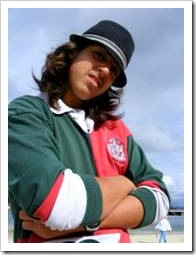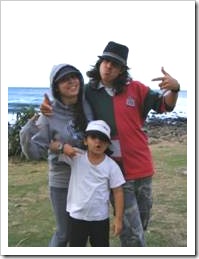 Just last term, during the school break, I discussed with my busy son Tsoof how to prepare for his last term of school. Because he is a busy kid who performs and rehearses during school hours, he misses many hours and even whole days of school (not to worry – although he has missed many days, he has received an academic excellence award).
Just last term, during the school break, I discussed with my busy son Tsoof how to prepare for his last term of school. Because he is a busy kid who performs and rehearses during school hours, he misses many hours and even whole days of school (not to worry – although he has missed many days, he has received an academic excellence award).
The reason I talked to him about it was that the previous term had been too hectic and there had been mornings when he had gotten up and lacked his usual spark about going to school “Yay, today I have…” He had been nearly exhausted, so I hoped that preparing for his last term would make it easier on him.
Tsoof was very surprised when I opened his diary and a calendar and showed him what his term was going to look like. His school fees had provided for a diary. Tsoof’s diary was a very good one, I must say, but it was empty most of the year, because the students are not allowed to write anything in it but school-related entries.
I find this silly, because when I coach teenagers on their organization skills, they always need to use another diary system, since they are not allowed to use the school diary. I help them organize their schooling and they cannot use the school diary to do it, so what is the point?
For a while, when I told him we were going to spend some time during the break studying his next term’s math, he was very unhappy about it.
“Mom”, he said, “I hate being in class and doing nothing because I’ve already finished the chapter earlier”.
Makes sense, right?
 Well, not exactly. He was not going to be in class, only he did not realize it.
Well, not exactly. He was not going to be in class, only he did not realize it.
Kids find it hard to plan, because they do not have the ability to put all the factors into the plan (experience, experience). Going over Tsoof’s diary, I showed him that since he was going to miss 20 days out of 40 days of term for all the scheduled rehearsals and performances (not counting the ones they announce two days ahead of time…).
He was going to miss half of all his subjects in class. Tsoof understood immediately he was going to play “catch up” the other half of the time.
He stopped protesting and finished 8 of 16 chapters in math during the school break.
When I compare my kids, I can see that although they are all very smart kids and academically successful (and socially, emotionally and obviously I love them and I am not objective), they do not have the same organization and planning skills. My 20-year-old daughter Eden is so organized she managed to work full time in a very demanding job, study psychology full time and get 100% and 99% on two of her university assignments.
If Tsoof had to do what she did, he would not have a chance.
But…
At the age of 13, Eden was exactly like Tsoof. She could not plan ahead very well, much like most of the kids and teens I work with.
How to raise organized kids
Kids are not born with organizing and planning skills and do not automatically adopt them, even if their parents are planning junkies. They need to be taught how to be organized gradually, as their mental abilities develop.
The first stage of teaching organization skills is to “walk the talk”. It is impossible to teach kids to plan if you do not plan your tasks and cannot be a role model. In our house, I am the diary and calendar person, so I am the person responsible teaching the kids how to plan and organize.
 The second stage of teaching kids planning skills is to expose them to your plans and your planning process. Show them how you plan things, describe your strategies and tell them about successes and achievements that were due to your planning skills.
The second stage of teaching kids planning skills is to expose them to your plans and your planning process. Show them how you plan things, describe your strategies and tell them about successes and achievements that were due to your planning skills.
I tell my kids about my wonderful relationship with the editor of a magazine I write for. I am one of the few writers she loves to work with, because I send my articles 3 weeks to a month before their due date. I always set “Ronit’s due date” for every task 2 weeks to 3 weeks before the external due date.
My older daughter Eden (aka Super Girl) has adopted this technique and it works even better for her.
The third stage of teaching kids planning skills is to guide them through simple planning tasks. This process is the longest and most daunting, but it is essential. When your kids plan a party, you do not tell them to do it all themselves. You sit with them, ask questions, highlight things kids may not be able to think of, show them how to write their plan down and teach them how to make a “to do” list.
Next time there is a party, you back off just a little bit. When your kids are ready, they will take more of this responsibility. If they are not ready, it only means they need your guidance for a bit longer.
The fourth stage is something I recommend, but it is not essential in developing organization skills, but more so in maintaining and updating them. Even if your kids can plan everything by themselves, they would love to know you are there to help them. Tell your kids that if they need any help, you will be there for them.
Sometimes, just saying this can make them feel confident enough to do better planning (everyone works better when relaxed). It also keeps you in the loop and gives you permission to suggest more tips and ideas. I learn new planning and organizing tips all the time and my daughter is always happy to hear about them.
Happy parenting,
Ronit
No posts found








